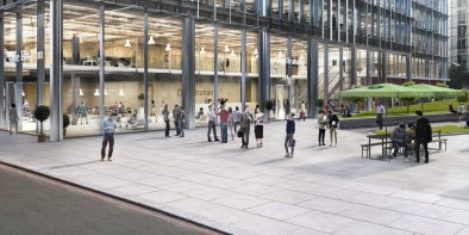To provide the best experiences, we use technologies like cookies to store and/or access device information. Consenting to these technologies will allow us to process data such as browsing behaviour or unique IDs on this site. Not consenting or withdrawing consent, may adversely affect certain features and functions.
The technical storage or access is strictly necessary for the legitimate purpose of enabling the use of a specific service explicitly requested by the subscriber or user, or for the sole purpose of carrying out the transmission of a communication over an electronic communications network.
The technical storage or access is necessary for the legitimate purpose of storing preferences that are not requested by the subscriber or user.
The technical storage or access that is used exclusively for statistical purposes.
The technical storage or access that is used exclusively for anonymous statistical purposes. Without a subpoena, voluntary compliance on the part of your Internet Service Provider, or additional records from a third party, information stored or retrieved for this purpose alone cannot usually be used to identify you.
The technical storage or access is required to create user profiles to send advertising, or to track the user on a website or across several websites for similar marketing purposes.
 BT has agreed a deal to move into a headquarters in the Aldgate area of London after the £210 million sale of its current base. BT will move to the new 320,000 square foot, 18-storey building near Aldgate East station currently called One Braham. The move comes as part of the group’s sweeping shake-up announced last month that will see 270 offices closed. Its consolidation plan – the biggest of its type in the UK – will see 300 offices reduced to 30 by 2023, although BT stressed that no jobs will be lost as a result of the move. (more…)
BT has agreed a deal to move into a headquarters in the Aldgate area of London after the £210 million sale of its current base. BT will move to the new 320,000 square foot, 18-storey building near Aldgate East station currently called One Braham. The move comes as part of the group’s sweeping shake-up announced last month that will see 270 offices closed. Its consolidation plan – the biggest of its type in the UK – will see 300 offices reduced to 30 by 2023, although BT stressed that no jobs will be lost as a result of the move. (more…)






























July 22, 2019
Problems with noise at work? A lot of it is in our heads 0
by Anna King • Comment, Wellbeing, Workplace design
(more…)